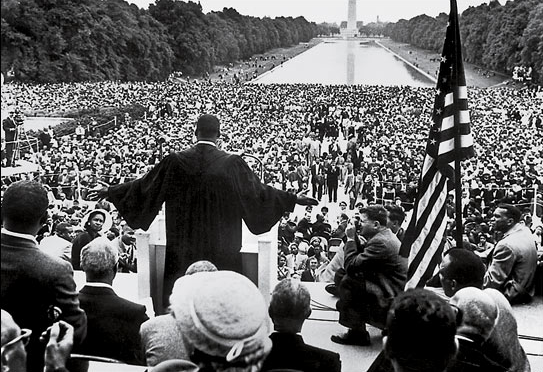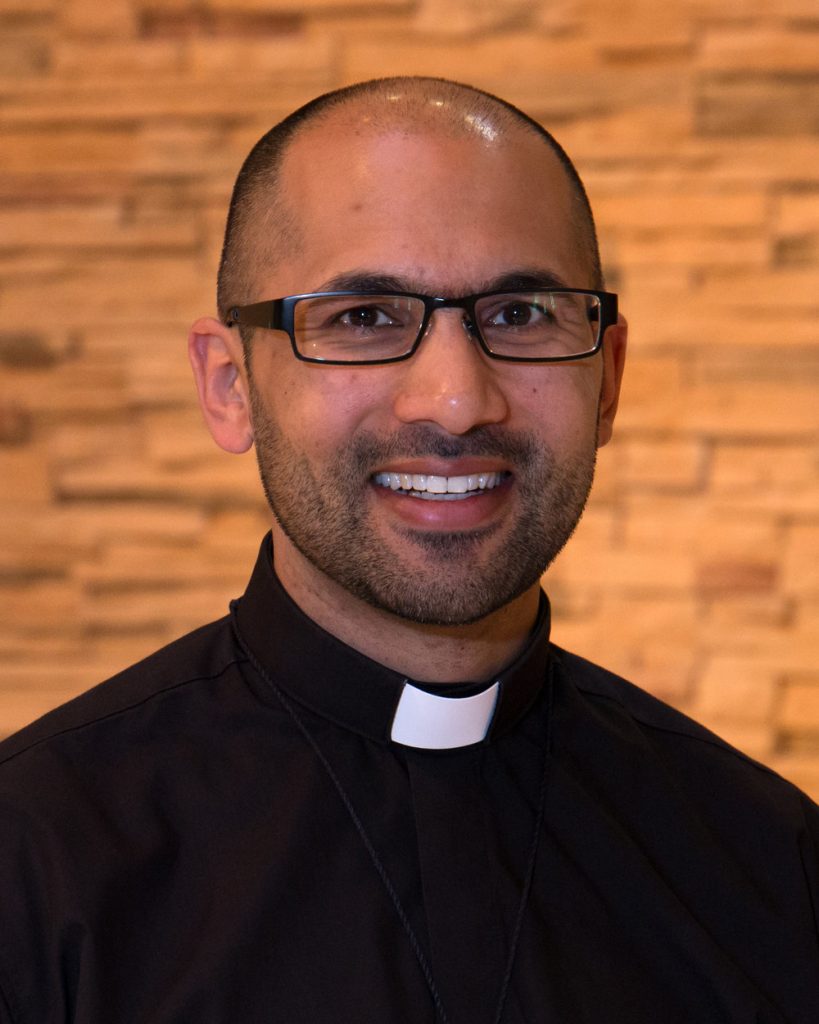This is the third post in a 3-part series. This week, I will provide two more shifts we can make toward Apostolic Mission (and 1 bonus idea) to close out the series.
Shifting from a Focus on Relevance to Timeless
As the Church engages with the wider society, she experiences tension between two goods, preserving the core and stimulating progress. The Church welcomes the elements of a culture that are not contradictory to the faith and she rejects any elements that cannot be assimilated.
[bctt tweet=”As the Church engages with the wider society, she experiences tension between two goods, preserving the core and stimulating progress. ” username=”BrettPowellorg”]
Culture is not static; however, it evolves and changes. One change may be minor, and another may be more significant. One shift will bring the culture closer to the Gospel, and another will push the culture further away. History has shown that some cultural shifts are so severe that the new normal is in direct opposition to the Christian faith. Legalizing abortion, for example.
The Church aims to be attractive to the world she is trying to reach. Focusing too much on being relevant, puts the Church at risk of losing her identity and becoming a Church in the world and of the world.
[bctt tweet=”Focusing too much on being relevant, puts the Church at risk of losing her identity and becoming a Church in the world and of the world.” username=”BrettPowellorg”]
In a recent conversation between Dr. Jordan Peterson and Bishop Barron, Peterson observed the tension between preserving the core and stimulating progress. He suggested to Bishop Barron that the Church should learn to communicate better to young people but as she does, the Church should never become so relevant that it forsakes its rituals. Relevance is an endeavour to keep up with the times, ritual is timeless and timeless truths are always relevant, even if the way they are communicated requires innovation. Methods are many, principles are few. Methods always change, principles never do.
We are living in a unique time in history, not an era of change but a change of era. Christendom no longer exists, and society is galloping further and faster from the worldview it once shared with Christianity. The Habiger Institute for Catholic Leadership is a place of thoughtful analysis concerning what it means to be a Catholic leader in modern society. In the book, True Leadership, the Habiger Institute provides insight on the emerging separation of worldview between the Church and modern society. The authors label this new paradigm as The Utopian Temptation.
[bctt tweet=”We are living in a change of era not just an era of change. Christendom no longer exists. Society is galloping further and faster from the worldview it once shared with Christianity. ” username=”BrettPowellorg”]
Everyone agrees that the world needs fixing. Politics is filled with corruption. Emerging interest groups are fostering polarization. There is a massive discrepancy in the distribution of wealth. Diseases continue to plague humanity. The educational system is becoming a conduit for ideological indoctrination. Loneliness and depression are on the rise. Drug overdose is killing more people than ever. Sexual abuse is a major issue in every sector. Marriages continue to fall apart, and families are struggling to cope with the pace of life. It cannot be denied, something has gone wrong with humanity.
For hundreds of years, society and the Church agreed that personal sin was the “something” that went wrong with the human race, “a fundamental turning from God that has deeply wounded our inner nature and delivered the world to the power of darkness and vanity” (True Leadership, p. 30). GK Chesterton famously communicated this worldview several decades ago. A London newspaper invited readers to draft an essay on the subject, “What is wrong with the world?” Chesterton penned a two-word answer, ‘I am.” Aleksandr Solzhenitsyn wrote similarly, “The line separating good and evil passes through every human heart.”
For centuries, society and the Church shared this “Fallen” worldview. We held in common the truth that human beings, while created in God’s image, have a wounded nature, inclined to sin, in need of both forgiveness and continual healing. We also share a common understanding of humanity’s antidote – the Lord Jesus Christ and the Church He founded. Everyone knew that each person needed conversion, grace, and the Holy Spirit to empower them to live a life worthy of the Gospel. We shared a sacramental economy. The Eucharist was considered heavenly food, full of grace and the healing presence of Jesus’ body, blood, soul and divinity. We valued Confession as a pursuit of freedom, not an oppressive ritual.

In Christendom times, Christians were regarded as humanists, full of apostolic energy and committed to the betterment of humanity and society. But this humanism was religious, not secular. Christians saw God as the One with perfect knowledge of the world. He has an omniscient understanding of the human condition, and the best Person to design a plan for the restoration of humanity. “His diagnosis of the problem and His prescriptions for its solution is perfectly accurate and completely effective, and they are the only way to successfully address humanity’s problems” (True Leadership).
The worldview today no longer elevates God and His Church as the guiding force we need to overcome what is plaguing humanity. The paradigms are changing. The cultural shifts are pushing society further from the worldview of the Church.
The godless solution being proposed has its philosophical roots in the enlightenment of the 17th and 18th century. Because the Fall is denied, the new paradigm suggests that the worst enemy coming against humanity is not sin, but ignorance. This is a consistent message coming from the new atheists like Sam Harris and Christopher Hitchens before him.
[bctt tweet=”Because the Fall is denied, the new paradigm suggests that the worst enemy coming against humanity is not sin, but ignorance. From, True Leadership, the Habiger Institute.” username=”BrettPowellorg”]
Nicholas Condorcet, a French thought leader of the enlightenment said, “the perfectibility of man is indefinite.” The path forward toward perfection is no longer about growing in the human virtues. It is the accumulation of knowledge, especially of physics, psychology, and sociological dynamics. In The Humanist Manifesto, John Dewey wrote, “We can discover no divine purpose or providence for the human species. While there is much that we do not know, humans are responsible for what they are or will become. No deity will save us; we must save ourselves.”
If humanity has no need of a divine Physician, Jesus Christ is no longer necessary. If sin has no relevance, the Cross and Resurrection are meaningless to modern man. The stories of the Gospel – the nativity scene, the raising of Lazarus, the feeding of the 5,000 and the Resurrection itself are filed away under the category of myth and legend, right beside stories of Big Foot and Santa Claus. The new paradigm holds the opinion that religious silliness is fine to believe at a personal level and within a family, but it should never be suggested for serious consideration as a common good for all people.
[bctt tweet=”If humanity has no need of a divine Physician, Jesus Christ is no longer necessary. If sin has no relevance, the Cross and Resurrection are meaningless to modern man.” username=”BrettPowellorg”]
[bctt tweet=”In a post-Christian world, some would suggest that the Resurrection be filed away under the category of myth and legend, right beside stories of Big Foot and Santa Claus. ” username=”BrettPowellorg”]
The new paradigm is a two-sided coin. On the one side is the elimination of personal sin. On the other side is the rejection of the divinity of Christ and eliminating the need for His life, death, and resurrection. More and more people are beginning to consider the Gospel as fairy tales.
I am writing this post on the 4th Sunday of Easter when the first reading is from Acts 4:8-12.
“Then Peter, filled with the Holy Spirit, said to them: “Rulers and elders of the people! It is by the name of Jesus Christ of Nazareth, whom you crucified but whom God raised from the dead, that this man stands before you healed. Jesus is ‘the stone you builders rejected which has become the cornerstone.’ Salvation is found in no one else, for there is no other name under heaven given to mankind by which we must be saved.”
Can there be a more anticipated clash of worldviews? Modern society suggesting we can save ourselves. No need for divine intervention. The Church proposing that Jesus is entirely necessary and unique, the one and only Savior of humanity and the only hope we have for forgiveness, restoration, and healing.
The tension between preserving the core and stimulating progress is not going away any time soon. In fact, the Church will be forced to manage the tension even better.
The Church is relevant when she partners with others in the fight against poverty and racial injustice. She is timeless when she engages with the hatred that passes through every human heart and strives to introduce every individual to the Lord Jesus who can heal wounds and set hearts free from the tyranny of hate.

The Church is relevant when she collaborates in the battle for economic parity, or for clean water in developing countries and equal opportunity for women. She is timeless when she helps every person recognize the universal brotherhood and sisterhood they share with other believers because they have a common heavenly Father.
The Church is relevant when she gives voice to the voiceless – the unborn, the elderly, those being trafficked, the politically oppressed, the sick. She is timeless when she speaks the Good News with gentleness and reverence to every human heart, those that are oppressed and those doing the oppressing.
There are thousands striking at the branches of what oppresses humanity, but only the Church of Jesus Christ is cutting at the root. The antidote to mankind’s fallen state is not knowledge, it is the forgiveness of sin. The healing of our wounded nature. The restoration of our hearts to the fullness of life in Jesus Christ, the Way, the Truth, and the Life. As we get clear on this message and learn how to innovate the way in which we communicate it, the Church will become more relevant, not less because timeless truths, communicated well, are always relevant.
The Shift from Managing Decline to Leading Transformation
In 1979 Pope John Paul II called for a new evangelization, an “evangelization of the second millennium.” He invited the Church to embrace a “new ardour, new methods and new expressions” in our efforts to spread the Gospel. In today’s spiritual climate the new evangelization also needs a new type of leadership.
There are certain fundamentals that apply to all forms of organizational leadership, including Pastoral leadership. Pastoral leadership is more like other roles of organizational leadership than it is unlike them. Yes, there are unique responsibilities and challenges, but the essence of leadership remains the same. Here are three consistent leadership fundamentals that apply to every sector, including pastoral leadership.
The mandate of every leader is to ensure the organization accomplishes the mission. Well-led organizations accomplish their mission, poorly led organizations do not do it well or at all.
Change is a permanent landscape for leaders. If change is not necessary, leadership is not required, management will do just fine. Managers maintain the status quo; leaders disrupt the status quo. Leaders challenge the process and foster an appetite for change and continual improvement. They take risks because missing an opportunity is worse than making a mistake.
Leadership is a choice. Leadership is not about holding a position or a title. Leadership comes down to making the decision to lead. To influence people; bring about positive change, and make forward progress.

Many, including Andre Regnier and Fr James Mallon have identified the need to transform the culture of our parishes as a first step to embracing the new evangelization – and therein lies the need for new leadership – transformational leadership.
Pastoral transformational leaders are divinely discontent with current reality. They lie in bed at night dreaming about transforming the parish into what it could be, should be, and must be for the sake of the renewal of the world.
The goal of transformational leadership is to transform people and organizations in a literal sense – to change minds and hearts. There are four roles of a transformational leader in the parish context:
• To inspire others by their exemplary commitment to evangelization and disciple-making.
• To set a missionary agenda focused on the people they are trying to reach, not the ones they are trying to keep.
• To recruit leaders and utilize the talents and charisms of people.
• To align all activities and initiatives to the evangelizing mission.
Transformational leaders lead their parish from maintenance to mission. They are passionate and committed to a “steps, not programs” mindset. These leaders make sure that every parish initiative is designed to help people take a step – a step closer to conversion, a step deeper in discipleship or to a step outward in missionary boldness.
Fortune 500 companies invest billions of dollars every year into the professional development of their leaders. It is ironic because many leaders leave the company long before a return on the investment is realized. Sadly, there is much less investment in our Pastoral leaders that champion the most important mission in the world.
The seminary is the beginning, not the end of the formation, especially formation in leadership. The new evangelization requires a new form of leadership to transform our parishes into missional outposts. We can do this; we must do this.

Summary: Five Shifts to Move from Christendom to Apostolic Mission
– The shift from Christendom power to Apostolic power.
– The shift from strategic planning to prophetic listening.
– The shift from Christendom messaging to Apostolic preaching.
– The shift from focusing on relevance to being timeless.
– The shift from managing decline to leading transformation.
The bonus idea is simple, I think we should have a funeral celebration for Christendom. The funeral rites are a necessary event that allows for grateful celebration and a marking of the transition required to move forward.
There is much to celebrate in terms of the impact Christianity made during the time of Christendom. Many Catholic institutions were formed, and they continue today. But the Church is no longer the trusted lighthouse for society. It is unhealthy to keep living as if everything were the same.
Could it be that a funeral event, celebrating all the blessings of Christendom and marking this time of transition will be a watershed for the Church, an event marking the shift from Christendom mode to Apostolic mission?


Awesome!!!!!!!!!
“Spot on, Brett”. We need more strong Catholic voices and leaders to prepare to “go boldly forward” evangelizing and presenting “hope to society”.
Thanks, Ed. Guys like you are leading the way!